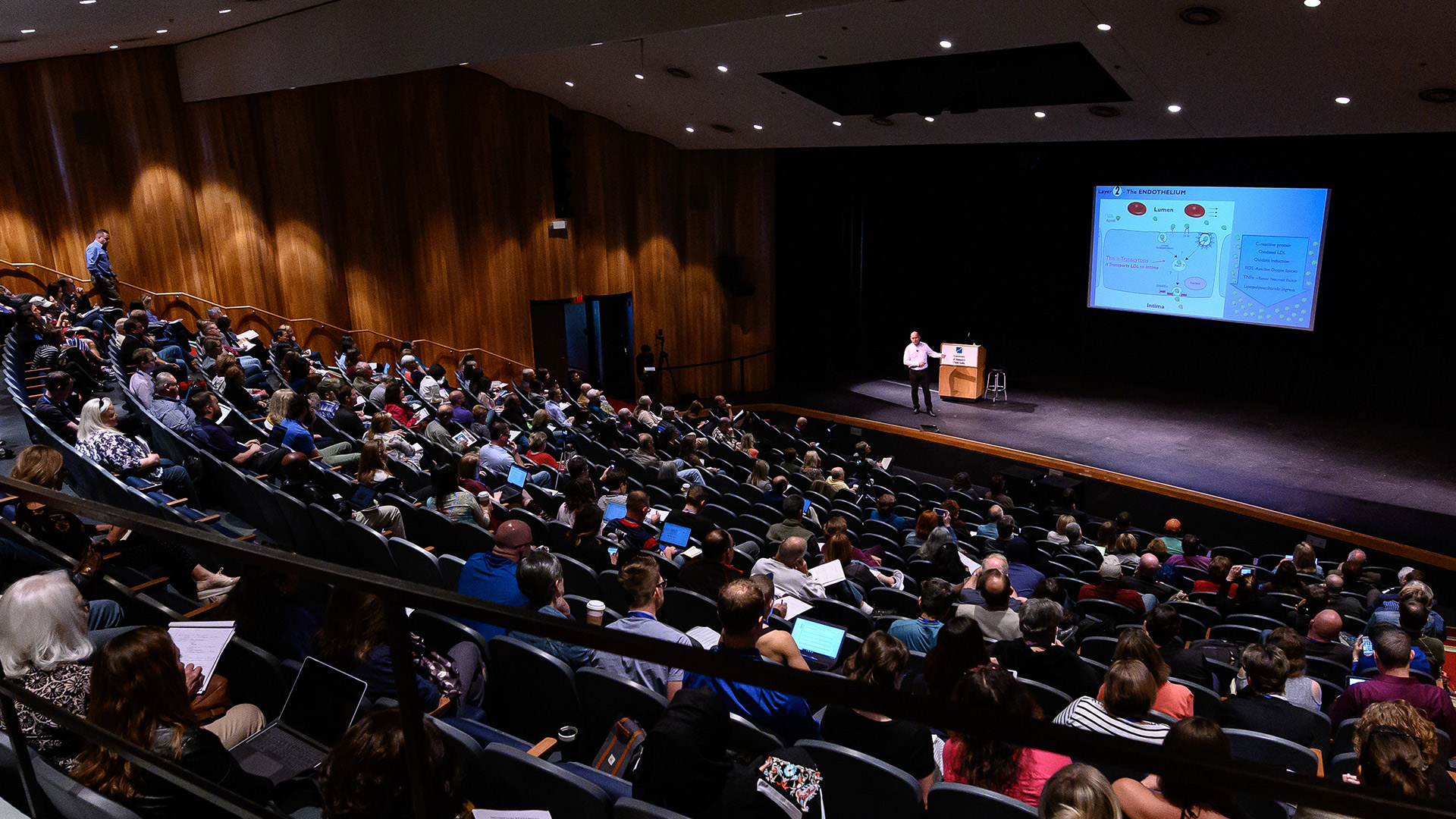Scientists to discuss benefits of ketogenic diet at Low Carb Houston conference
September 5, 2019 | UHCL Staff

University of Houston-Clear Lake’s Exercise and Nutritional Health Institute will host the second annual Low Carb Houston Conference Oct. 24-26 to examine ways
in which research evidence and clinical experience demonstrate the benefits of the
ketogenic diet. Medical doctors, scientists, public policymakers and others will be
on hand to present information analyzing the causes and effects of metabolic diseases
like obesity and diabetes, and how advances in nutritional science can address those
illnesses.
Dr. Jeffry Gerber, a board certified family physician in Littleton, Colorado, is known
as “Denver’s Diet Doctor.” He spoke at last year’s conference and will be among the
presenters again this year. “This year, I will be speaking about metabolic syndrome,
insulin resistance and what I call the ‘Big Three’ – obesity, diabetes and heart disease,”
Gerber said. “The idea is that if we can find an effective treatment for those three
issues, we could greatly reduce health care costs.”
Advancing nutritional science, Gerber said, is the important message of the conference.
“I’m going to discuss those three diseases and how they are best treated with a low
carbohydrate diet, and talk about the best nutritional approaches for these illnesses,”
he said. “I’ll begin by talking about metabolic syndrome, identified by several clinical
findings including abdominal obesity, hypertension, hyperglycemia and insulin resistance.
Those findings are associated with diabetes, heart disease and many other chronic
diseases we see in medicine.”
He explained that in the past three decades, although methods were found to identify
metabolic syndrome, diet was not considered a factor. “Diet wasn’t being discussed.
Doctors were going with the standard ‘low fat, low calorie’ advice for patients,”
he said. “When I was learning about the low carbohydrate diet 20 years ago, I found
that the carbohydrates are the primary macronutrient that drive high insulin. That
means low fat, low calorie is the opposite of what should be done to address the mechanisms
that drive this syndrome. It’s driven by carbs, and we need to teach people what healthy
carbs are.”
Doctors gave the low fat recommendation because the American Heart Association saw
a connection between dietary fat and heart disease. “But it’s a very weak connection,”
Gerber said. “Fat is a calorie-dense macronutrient, and if you’re focusing on weight
loss, reducing the calorie-dense food is the easiest way to reduce calories. Weight
loss experts said reducing saturated fats would cause weight loss. And heart disease
specialists said that if you reduce saturated fat, you’ll reduce the risk of heart
disease. So two think tanks came up with a platform that worked both ways.”
And along those lines, he continued, the breadbasket of the country, where all the
wheat and grain are grown, teamed up and said the same about reducing saturated fats.
“But that approach, does not address metabolic syndrome,” Gerber said. “What fuels
metabolic syndrome is carbohydrates, not fat. The diet should be high fat, low carb.
But that goes against the conventional wisdom going back a long time.”
The Center for Disease Control estimates that over 40 percent of the population in
the U.S. is obese. “That’s a huge number,” Gerber said. “Two-thirds of the population
have some kind of pre-diabetes, diabetes or metabolic syndrome. By 2035, half the
population will have some form of cardiovascular disease. The recommendations we’re
discussing address the majority of the American population, and we’re dispelling the
myths and misconceptions about what is unhealthy about cutting carbs from the diet.
We hope to teach the public that fat and ketones, which the body has a huge supply,
are preferred fuel for the body.”
With conferences like this, Gerber said, health care professionals as well as others
can become better educated. “This is a grassroots effort to advance nutritional science,”
he said.
Register for the Low Carb Houston conference online.
About the Author:
Recent entries by
October 18 2022
Better technology transforms campus safety: Police Chief demonstrates SafeZone to students
October 14 2022
Student's skill with drones takes chicken turtle research to new heights
October 11 2022
Planting event to help UHCL restore native plants to campus, support environmental sustainability







